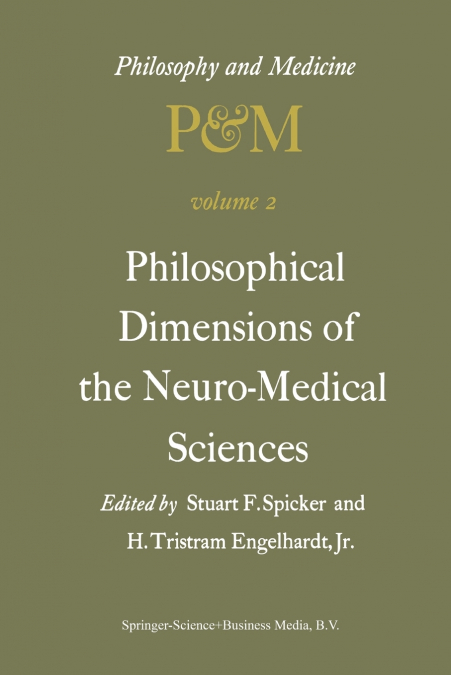
Although the investigation and regulation of the faculties of the human mind appear to be the proper and sole concern of philosophers, you see that they are in some part nevertheless so little foreign to the medical forum that while someone may deny that they are proper to the physician he cannot deny that physicians have the obliga tion to philosophize. Jerome Gaub, De regimine mentis, IV, 10 ([ 10], p. 40) The Second Trans-Disciplinary Symposium on Philosophy and Medicine, whose principal theme was ’Philosophical Dimensions of the Neuro-Medical Sciences,’ convened at the University of Connecticut Health Center at the invitation of Robert U. Massey, Dean of the School of Medicine, during May 15, 16, and 17, 1975. The Proceedings constitute this volume. At this Symposium we intended to realize sentiments which Sir John Eccles ex pressed as director of a Study Week of the Pontificia Academia Scientiarum, CiWl del Vaticano, in the fall of 1964: 'Certainly when one comes to a [study] . . . devoted to brain and mind it is not possible to exclude relations with philosophy' ([5], p. viii). During that study week in 1964, a group of distinguished biomedical and behavioral scientists met under the director ship of Sir John C. Eccles to relate psychology to what Sir John called ’the Neurosciences. ’ The purpose of that study week was to treat issues con cerning the functions of the brain and, in particular, to concentrate upon the relations between brain functions and consciousness.